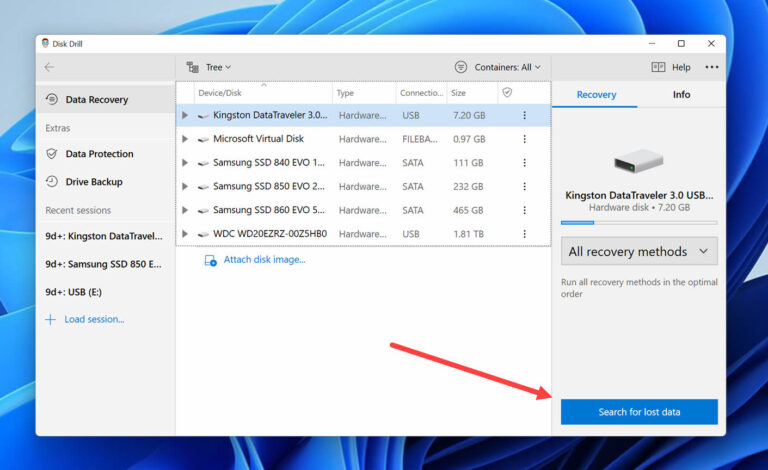VMware's Data Recovery: Essential Information for Disaster Management
In the current technological environment, the importance of robust data recovery strategies is paramount, notably for organizations dependent on virtualized platforms. VMware, a front-runner in the virtualization domain, delivers effective tools for managing and protecting data, but numerous businesses often remain vulnerable during emergencies. Comprehending the principles of VMware Data Recovery is essential to protect important data and facilitating operational continuity when unexpected situations arise.
Whether facing VMFS data recovery , RAID recovery solutions, or hard drive recovery, knowing the recovery alternatives is vital. Loss of data can happen for various reasons, including hardware failures to accidental deletions, and knowing how to effectively tackle these problems can preserve resources and time. In this article, we will examine crucial factors in VMware Data Recovery, which include vital recovery solutions along with strategies for virtual machine restoration, to aid you in developing a robust recovery framework that safeguards your business.
VMware File System Data Recovery Strategies
VMFS, or VMFS, serves as vital for storing virtual machine files in a VMware environment. In the event of data loss, having a well-defined recovery strategy is important to minimize downtime and restore services effectively. One effective strategy includes consistently backing up VMFS volumes. Utilizing VMware's built-in snapshot technology allows administrators to create point-in-time copies of virtual machines without needing downtime. These copies can be crucial for quick restoration in the event of data damage or unintentional deletion.
Another approach to VMFS data recovery is to establish robust RAID configurations. RAID provides redundancy and fault tolerance, making it a crucial element of data loss prevention strategies. If data loss occurs, RAID recovery services can be utilized to restore lost data from the storage system. Choosing the appropriate RAID level, such as RAID 5 or RAID 10, can boost performance while ensuring data remains safe. Regular checks and maintenance of RAID arrays will also assist in averting potential data loss scenarios.
Finally, having a dedicated data loss solutions plan in place plays a vital role in efficient VMFS recovery. This plan should outline clear procedures to follow when data loss incidents happen, including the use of dedicated recovery software designed to handle VMware environments. Data recovery experts may also assist in the recovery process to ensure that all VMs are restored to their previous state. By combining regular backups, RAID configurations, and a reliable recovery plan, businesses can effectively their data within a VMFS setup.
Redundant Array of Independent Disks and Disk Data Restoration Services
When dealing with VMware environments, understanding RAID and disk data recovery strategies is critical for efficient disaster recovery. RAID configurations provide redundancy and performance benefits, making them widely used for hosting virtual machines. However, RAID arrays are not immune to failures, and if a drive fails, it can jeopardize the integrity of the data within the array. In such cases, having a dependable RAID recovery service is important to restore the data and minimize loss of productivity.
Disk recovery is a further critical aspect of data loss solutions in VMware settings. Physical drive failures, accidental deletions, or data corruption can lead to substantial data loss. Utilizing sophisticated recovery techniques and tools can help restore lost data from faulty or defective drives. It is crucial to have a solid understanding of the indicators of hard drive failure to act swiftly and seek professional recovery services when needed.
In combination, RAID and hard drive recovery services ensure strong protection against data loss in VMware environments. Organizations should invest in dependable data recovery solutions that incorporate both RAID and hard drive recovery capabilities. This holistic approach will assist in safeguarding virtual machines and enhancing the overall resilience of the disaster recovery strategy, guaranteeing that critical data remains accessible even in the event of a hardware failure.
VM Data Decrease Mitigation
Reducing data loss in VMs requires a active approach to data protection. Firms should deploy comprehensive backup solutions that consistently capture the state of their VMs. This entails utilizing VMware's built-in snapshot capabilities to establish restore points before major changes. Planning consistent backups ensures that you can quickly recover from issues such as unintentional deletions, data corruption, or hardware failures.
Moreover, ensuring redundancy through adequate infrastructure design is essential for safeguarding VM environments. Leverage RAID recovery services can help protect against information loss caused by hardware malfunctions. By setting up storage systems with RAID levels that suit your recovery requirements, you reduce the risk of downtime and ensure data integrity across VMs. Frequent testing these recovery measures will also validate their effectiveness.
In conclusion, cultivating a culture of data loss awareness within your organization goes a long way. Educating staff on the value of data safety practices, such as following consistency in backup procedures and notifying potential issues swiftly, is essential. Implementing clear data loss solutions and recovery plans helps to guarantee that all employees understand their duties in mitigating risks and can react swiftly in the case of data loss incidents.
